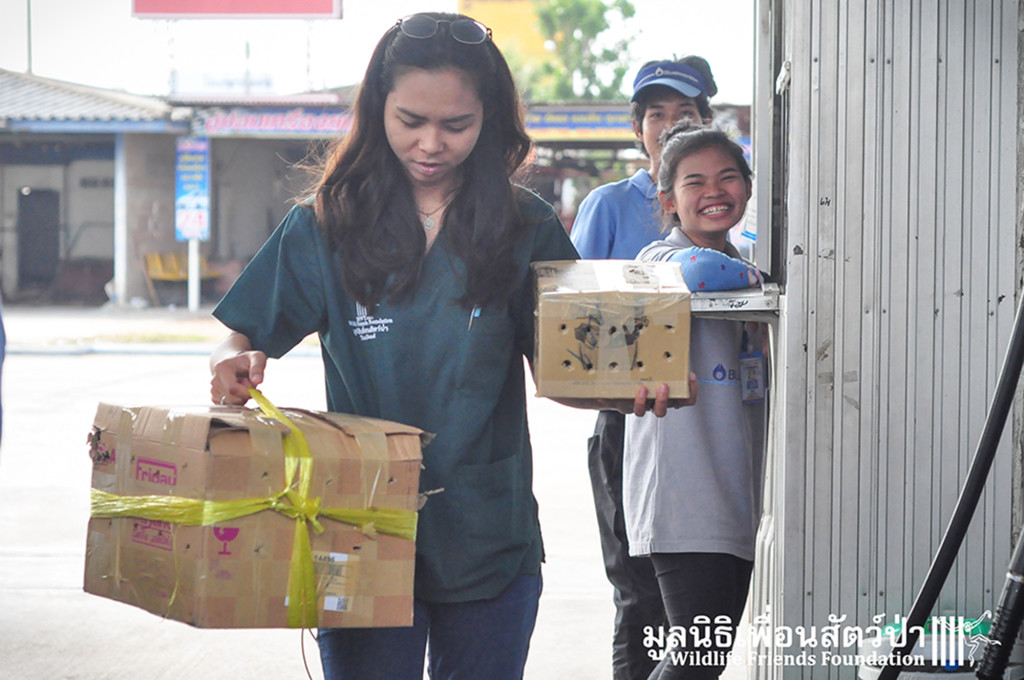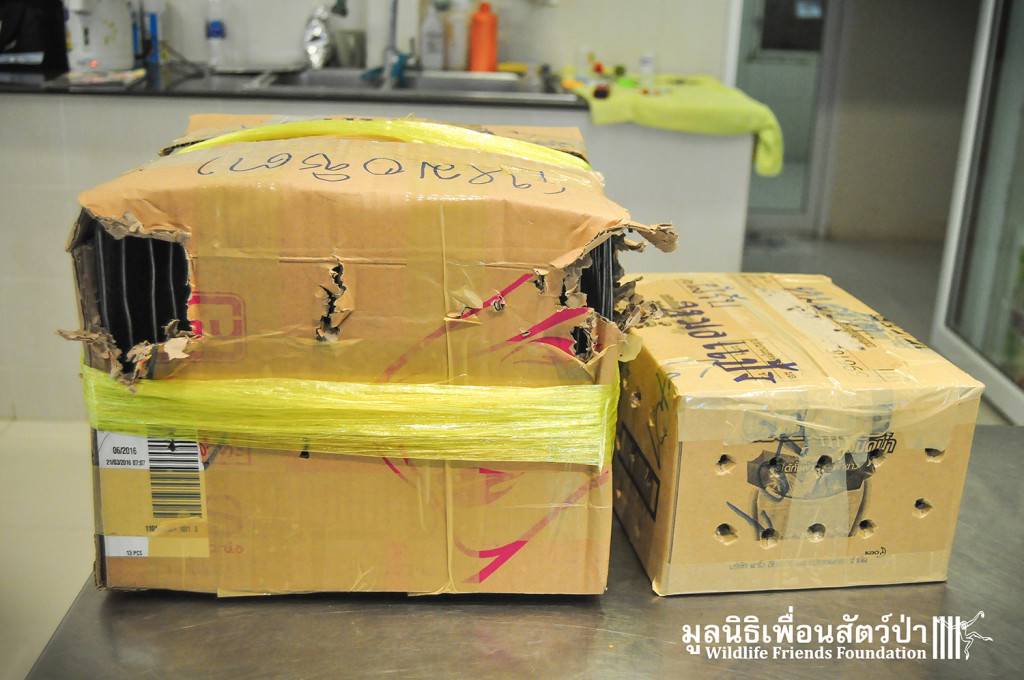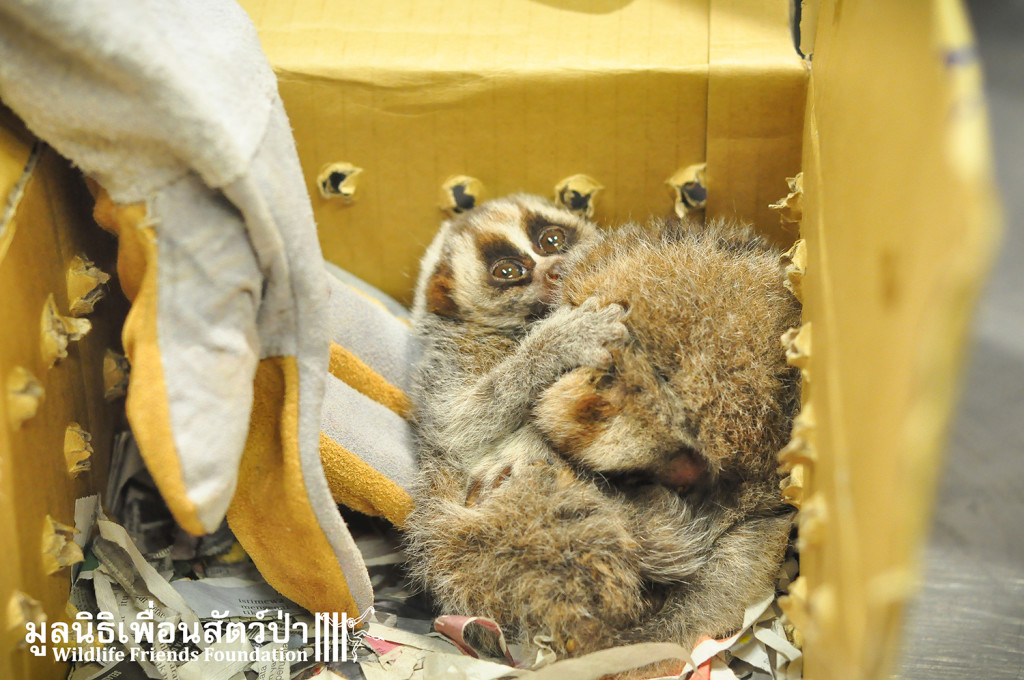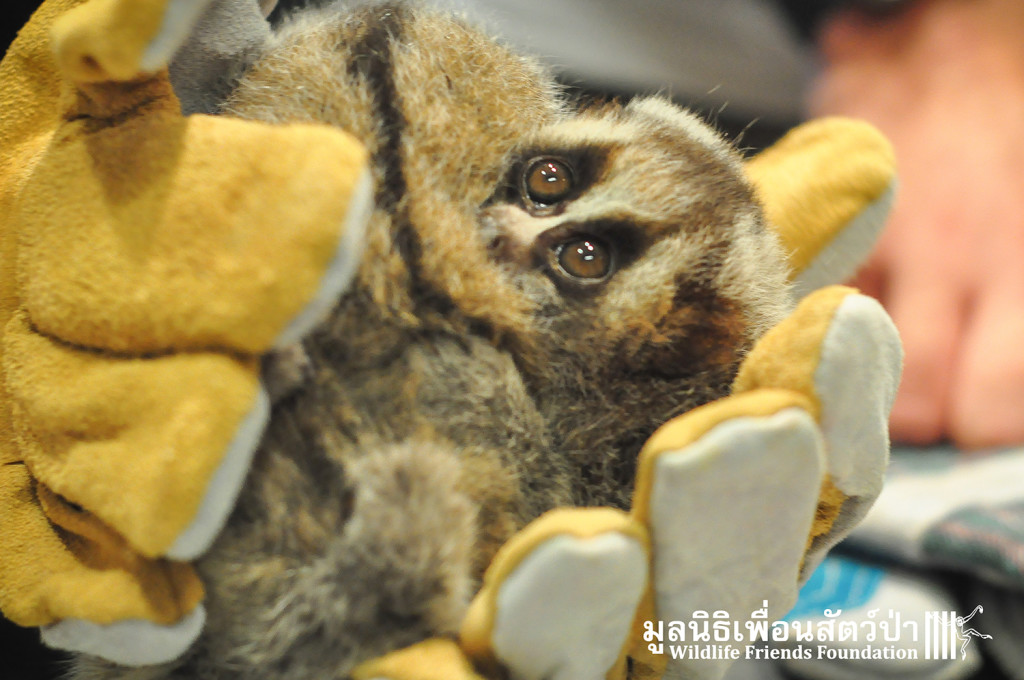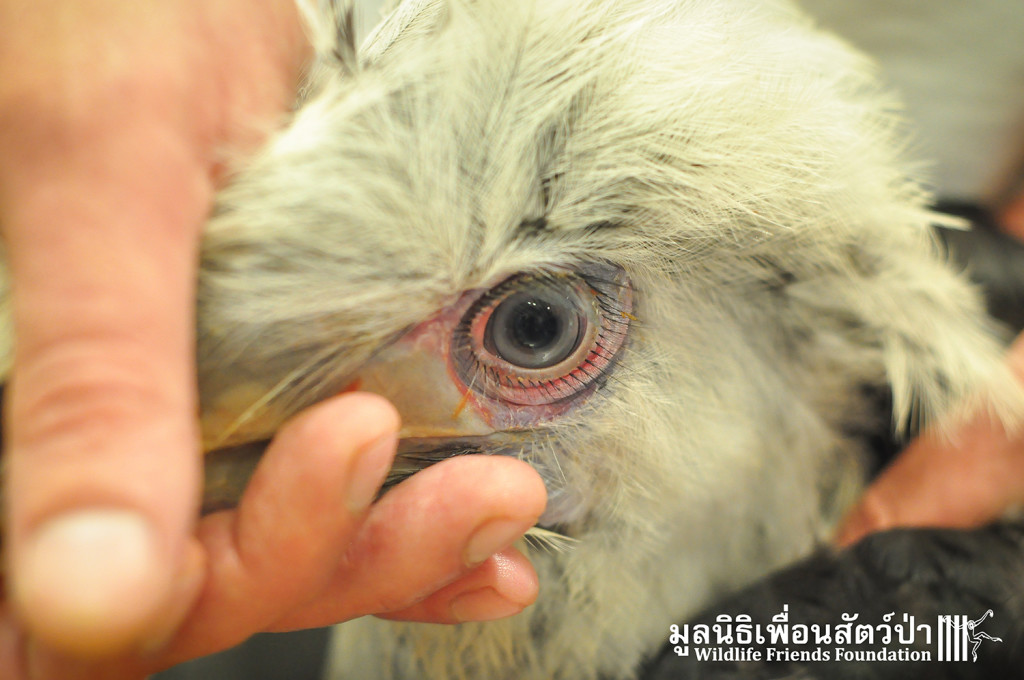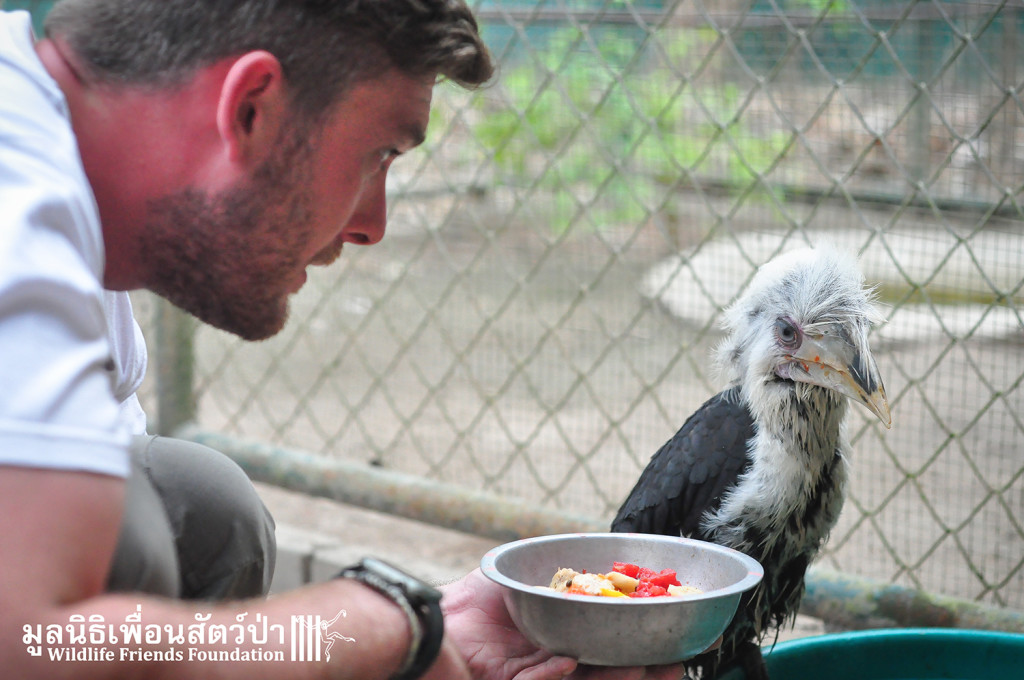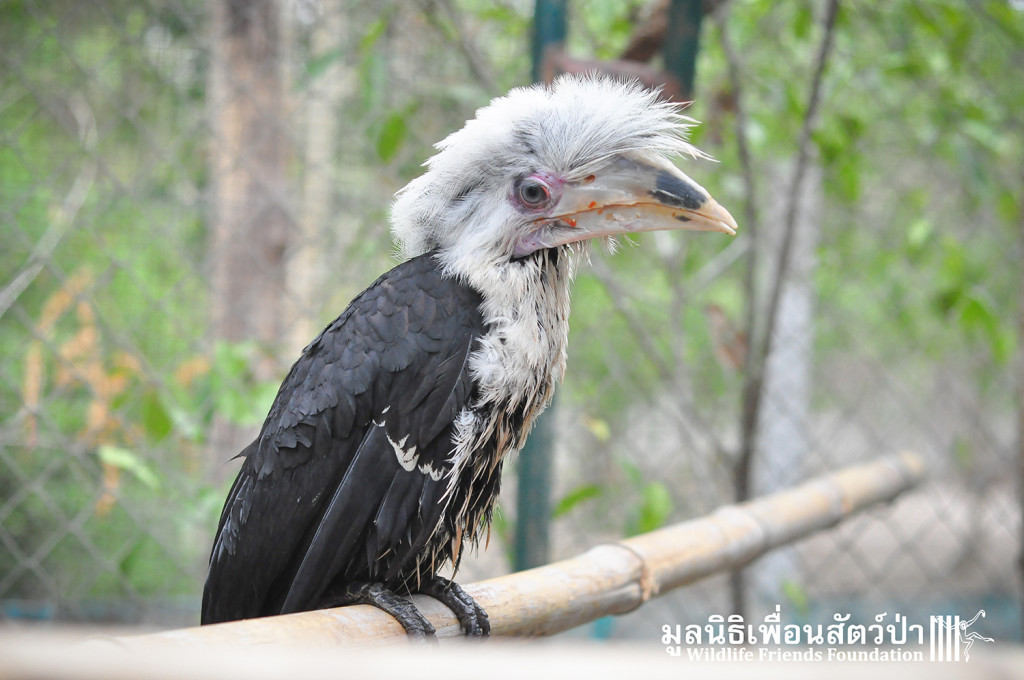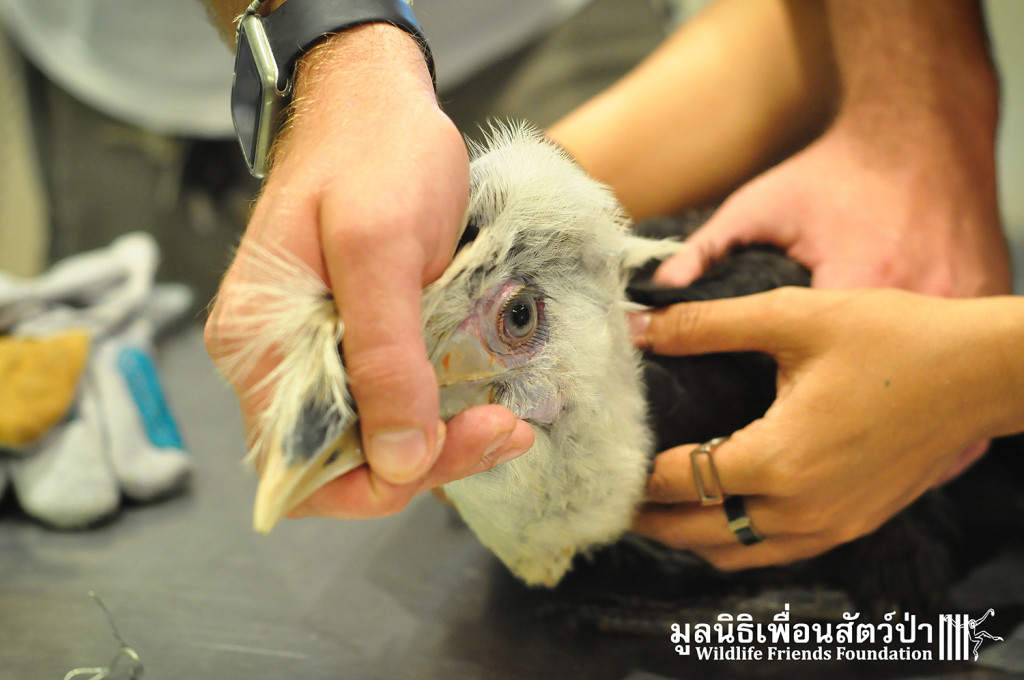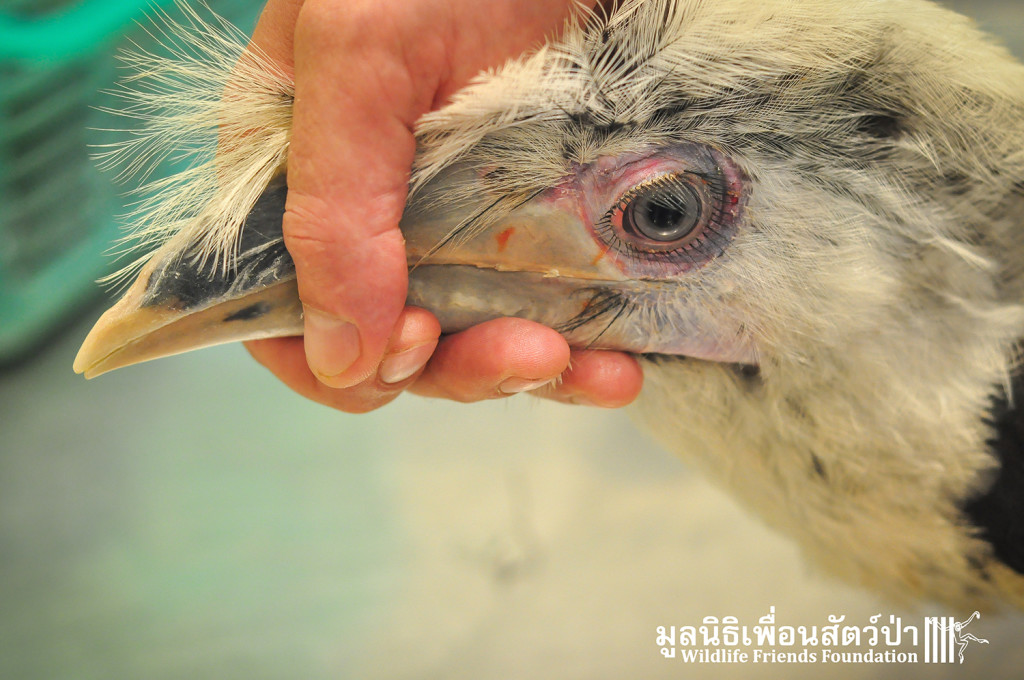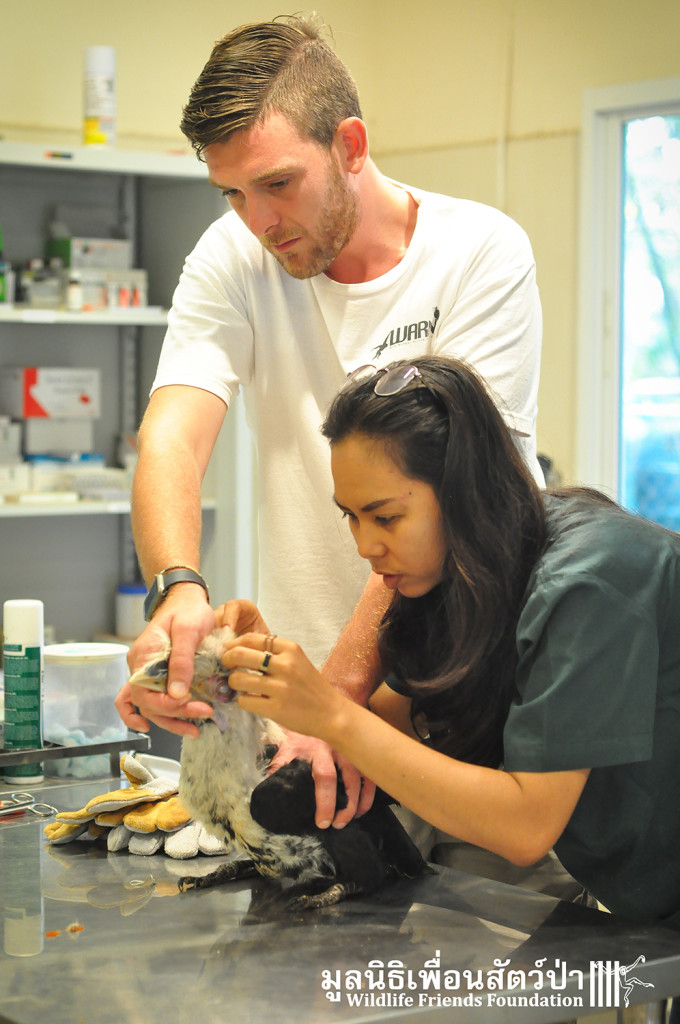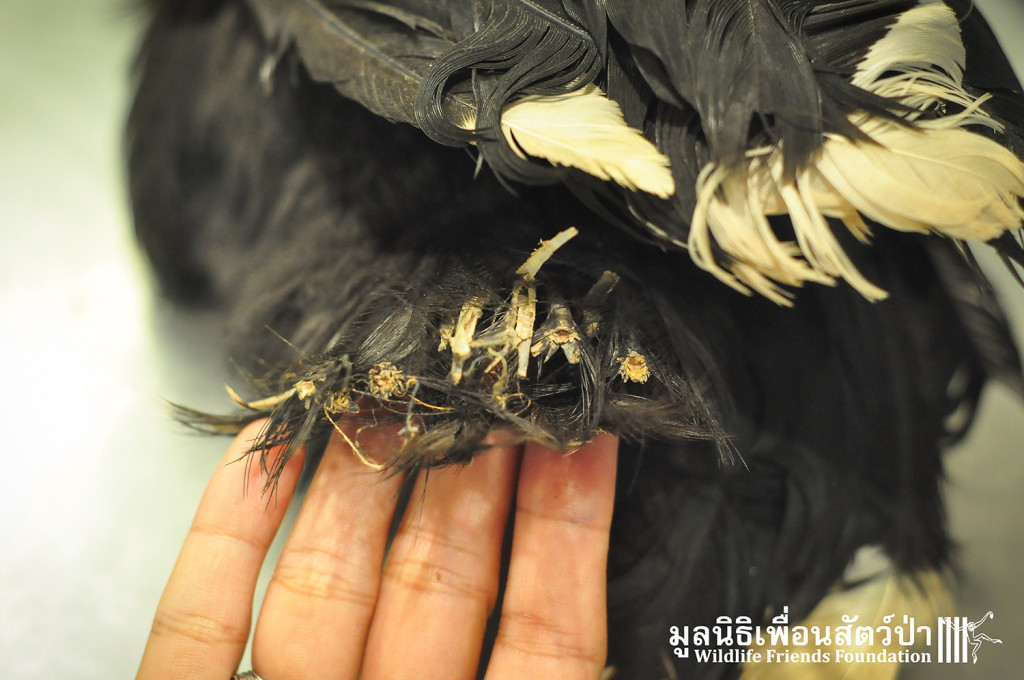A big step forward! An MOU has been signed with the coconut industry and authorities to phase out monkey labour and exploitation in coconut harvesting.
White-crowned Hornbill and 2 Slow Loris Rescued
We received a call from a lady who had ‘rescued’ a juvenile white-crowned hornbill (Berenicornis comatus) and two Bengal slow lorises (Nycticebus bengalensis) from a market. She called us and to our disbelief she told us that she had put these animals onto a public bus from Bangkok to Cha am, a town close the WFFT Wildlife Rescue Centre. The rescue team rushed to find the bus that was carrying the animals. The team were horrified to find the animals in very small wire cages inside card board boxes, they had probably spent days in these hideous transportation cages without proper food or water. The hornbill was so tightly packed into the box he couldn’t even move. His tail feathers had been almost completely chopped off so he could be put into the tiny cage.
The white-crowned hornbill is listed as Near Threatened (NT) by the IUCN Red List of Threatened Species, it has a large range, but is generally uncommon throughout. The destruction of forest habitat is likely to have impacted this species in the past, and will continue to do so in the future. A rapid population decline is suspected to be occurring as a result of habitat destruction throughout the species’ range. The magnitude of these threats could have been allayed by this species’ tolerance of hill forest, which is under less pressure from logging and agricultural conversion.
The Bengal slow loris is listed as Vulnerable (VU) by the IUCN Red List of Threatened Species, due to loss of habitat and severe pressures from hunting, there is more than 30% reduction in population over three generations. It is predicted to decline by more than 30% in the next three generations over its entire range due to continuing hunting pressures and loss of habitat. The major threats that this species’ habitat faces include farming, timber removal, human settlement, road building, dams, power lines, fragmentations, soil loss and erosion, and deliberately set fires. They are hunted and traded for food, traditional “medicine”, sport, and as pets.
Upon arrival to the WFFT Wildlife Hospital a health check was performed. The hornbill was severely dehydrated and is under nourished. He is a young juvenile; we assume that he has been stolen from the nest of his parents. The lorises are also juveniles and again it is likely that they were poached from the wild. They are all recovering from their ordeal well.

